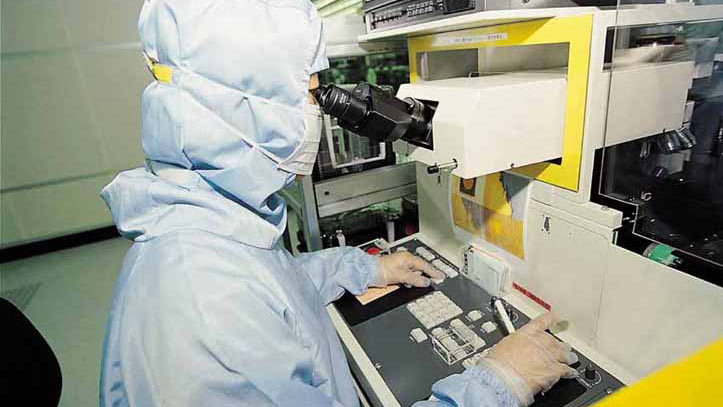
TSMC clean room workers are routinely tasked with finding 'bombs' in machinery, according to Taiwan's United News Network (UDN). We have put 'bombs' in inverted commas, as the staff undertaking equipment testing and maintenance will find sticky notes with 'bomb' written on them located on various components instead of potentially explosive devices.
UDN based its report on anonymous TSMC employee chitchat on social media, so we must add a pinch of salt to this eyebrow-raising work practice. However, we understand that the 'bomb-finding' appears to work as follows:
- A supervisor will hide sticky notes inside machines which are part of a regular service/inspection rota
- Workers maintaining and inspecting machines will spot and collect the notes as they work through their daily tasks.
- If any notes are missed, workers will have 'points' deducted. However, we don't know how important positive or negative points are to workers.
The 'bomb' notes are designed to minimize workers signing checklists as completed without actually performing the work. However, you might sympathize with one of the supposed TSMC employees responding to the 'bomb-finding' task by asking, "What kind of punishment is this?" This method of inspiring workers appears to have occurred or been most common at TSMC's 14B factory in the Southern Taiwan Science Park, Tainan.

Various equipment inspections are essential to TSMC employee operations as they seek to minimize downtime for a host of preventable issues. Careful examination is used to check for anything abnormal, with problems like water or acid leakage among the most significant issues noticeable by the eye.
Considering the above, it doesn't seem like the TSMC's 'bomb-finding' activity is reckless. However, potential issues may be that it causes employee stress or that some may find the use of the bomb word tasteless.
UDN reckons the source of the 'bomb' sticky notes idea might be Taiwan's military. The report says that the army routinely does sabotage exercises where critical strategic facilities are infiltrated. Operatives leave spray-painted 'bomb' and 'poison gas' tags in their wake. Obviously, a 'defending' team would seek to minimize the spray paint antics or attend to them rapidly.
As a side note, UDN says that bomb threats are an increasingly popular way for criminals to extort money from organizations and businesses - suggesting many schools, theme parks, and public transport hubs often get targeted with such shenanigans. Thus, using this language in the workplace might not be a great idea.







